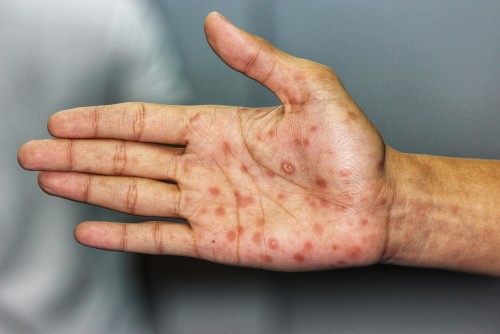WASHINGTON, DC – A new World Health Organization (WHO) report says new syphilis cases among adults aged 15-49 years increased by 30 percent between 2020 and 2022 in the Americas, including the Caribbean.
 Syphillis, a bacterial, sexually transmitted infection, is a preventable and curable disease, but cases have escalated globally by over one million in 2022, reaching a total of eight million.
Syphillis, a bacterial, sexually transmitted infection, is a preventable and curable disease, but cases have escalated globally by over one million in 2022, reaching a total of eight million.
The new report, “Implementing the global health sector strategies on HIV, viral hepatitis and sexually transmitted infections, 2022–2030”, says that the Americas currently face the highest incidence worldwide, with 3.37 million cases (or 6.5 cases per 1000 people), accounting for 42 percent of all new cases.
According to the WHO, the rise in syphilis infections can be attributed to several factors, including insufficient awareness about the disease, disparities in access to healthcare services and in diagnostics and treatment, and the persistent stigma around sexually transmitted diseases, which may deter individuals from seeking medical assistance.
“Eliminating syphilis and congenital syphilis is achievable, but it demands a comprehensive approach that addresses the high prevalence of syphilis among the general population, protecting everyone,” said Pan-American Health Organization (PAHO) Director Dr. Jarbas Barbosa. “Countries must reaffirm their political commitment and accelerate efforts to end this preventable and curable disease.”
If left untreated, syphilis can cause serious health issues, including brain and cardiovascular diseases.
The global organisation says many people with syphilis do not have symptoms or do not notice them.
The WHO report also pointed to a rise in cases among pregnant women. In the region, it says the percentage of pregnant women with syphilis increased by 28 percent in the past two years.
The report says this trend has translated into an increase in congenital syphilis, reaching an estimated 4.98 cases per 1,000 live births in 2022, “significantly surpassing the WHO target of 0.5 cases per 1000 live births.”
That year, an estimated 68,000 babies were born with syphilis in the region, the report says.
“We must bolster prenatal care services to ensure universal syphilis testing for every pregnant woman and prompt adequate treatment for those testing positive, and their sexual partners to achieve the elimination of congenital syphilis by 2030,” said Dr. Sylvain Aldighieri, director of PAHO’s Department for the Prevention, Control and Elimination of Communicable Diseases.
PAHO recommends that countries continue to raise public awareness of syphilis, including its transmission routes and preventive measures.
It said this entails offering rapid tests for early diagnosis and ensuring timely and appropriate treatment with penicillin to effectively cure the infection, thus averting disease transmission and potential complications.
PAHO said it works with countries in the Americas to strengthen surveillance and build capacity among health care workers in the areas of prenatal care services for syphilis and congenital syphilis.
The health organization said it also engages with communities and civil society to raise awareness and advocacy for the elimination of these conditions.
PAHO said both syphilis and congenital syphilis are included in its Elimination Initiative, targeting the elimination of 30 diseases and conditions by 2030.
Regionally, PAHO said WHO has certified 11 countries and territories for eliminating mother-to-child transmission of HIV and/or syphilis since 2015.
The report will be discussed at the 77th World health Assembly scheduled to convene from May 27 to June 1, 2024, in Geneva, Switzerland, PAHO said.


